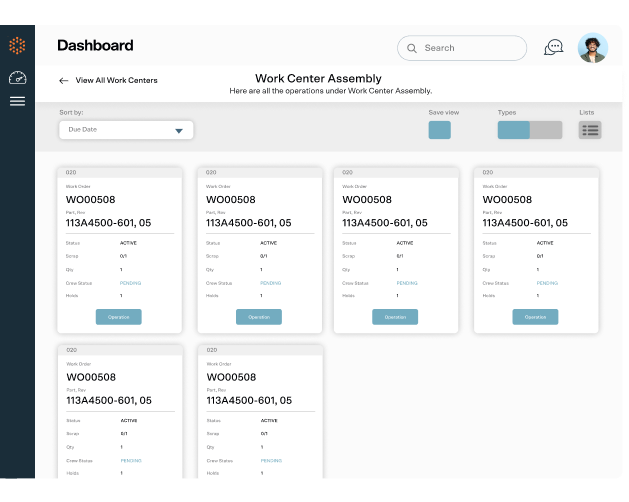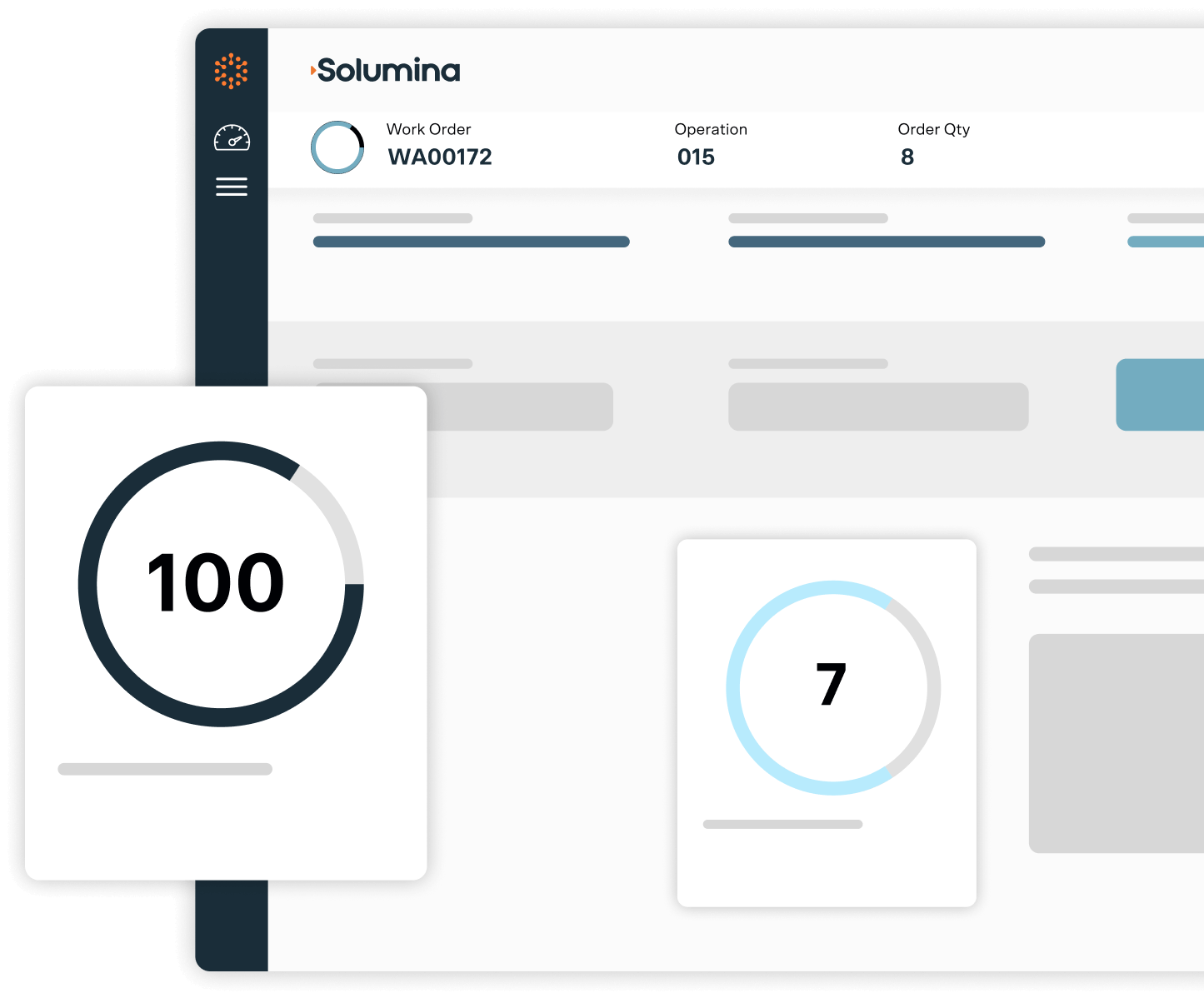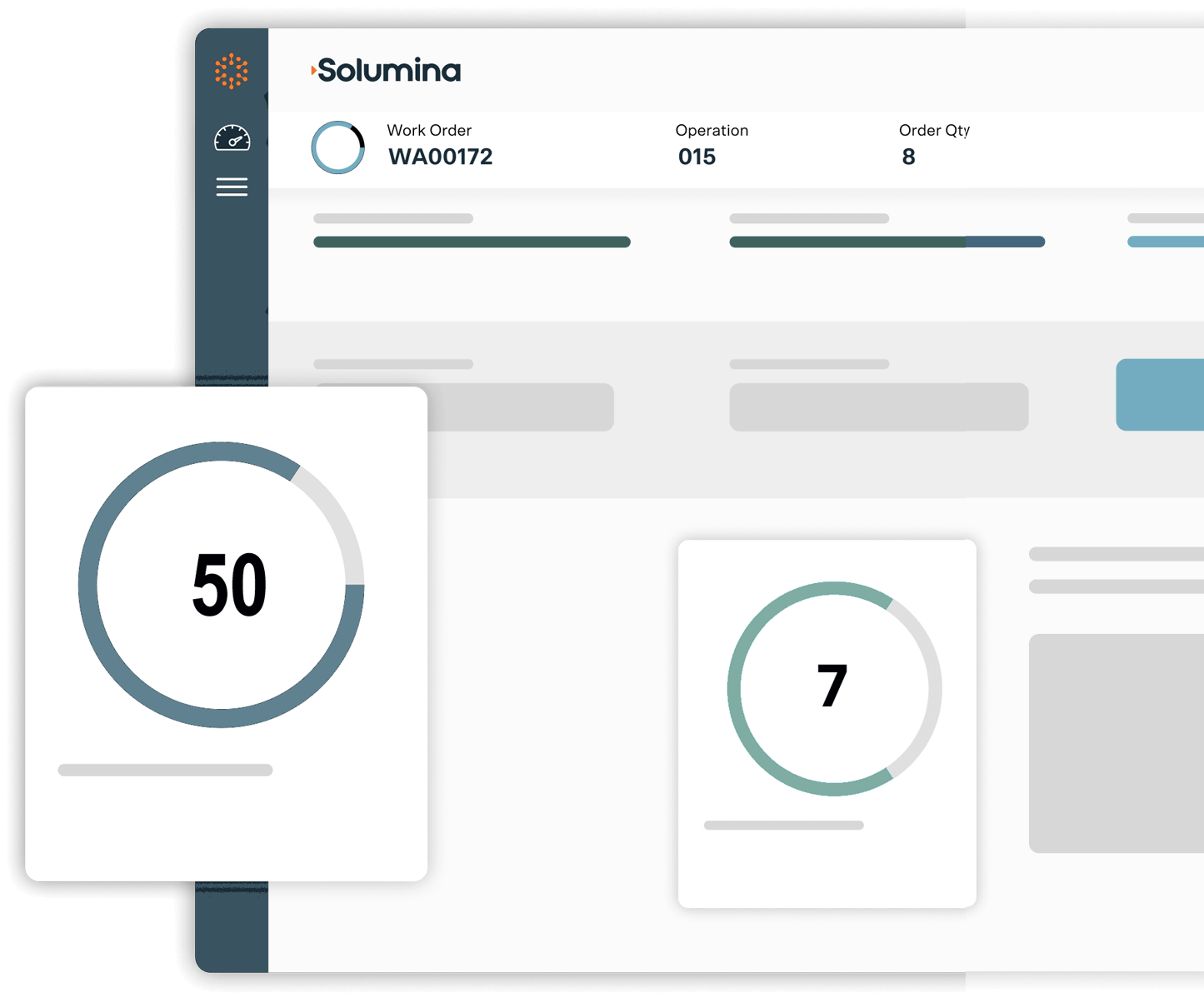Industry Experience, Practical MES, SQM, and MRO Solutions.
iBase-t delivers more than just software applications. We provide the data that drives the intelligence to operate with greater precision. Utilize the Solumina platform by iBase-t to leverage advanced technologies, expand your digital ecosystem, and drive Industry 4.0 strategies. Combine our software with our partner and professional services to enable the digital enterprise.

SQM
Are suppliers causing problems or enabling success? Solumina Supplier Quality Management software can determine the answer by monitoring and responding to changes in supplier performance on an enterprise scale.
MES
Part of the iBase-t suite of solutions, Solumina MES helps to tightly integrate all Industry 4.0 devices and software to become a digital ecosystem of technology and a unified source of data for your enterprise.
MRO
Solumina Maintenance, Repair, and Overhaul (MRO) by iBase-t takes visibility, control, and efficiency in complex shop floor operations to a new level.
EQMS
iBase-t’s embedded Enterprise Quality Management System (EQMS) makes it possible to ensure products are manufactured to the highest quality standards on a consistent basis, while attaining manufacturing efficiency and performance goals in the process.







Part of the iBase-t suite of solutions, Solumina MES helps to tightly integrate all Industry 4.0 devices and software to become a digital ecosystem of technology and a unified source of data for your enterprise.

Are suppliers causing problems or enabling success? Solumina Supplier Quality Management software can determine the answer by monitoring and responding to changes in supplier performance on an enterprise scale.

Solumina Maintenance, Repair, and Overhaul (MRO) by iBase-t takes visibility, control, and efficiency in complex shop floor operations to a new level.

iBase-t’s embedded Enterprise Quality Management System (EQMS) makes it possible to ensure products are manufactured to the highest quality standards on a consistent basis, while attaining manufacturing efficiency and performance goals in the process.
Solumina | Technology by iBase-t
A comprehensive digital operations suite for more intelligent manufacturing.
Add-ons for the Solumina platform.
Our add-ons can help you take your solution even further. Complement and extend the Solumina platform’s capabilities with add-on offerings.
Manufacturing Intelligence
Software Developer Kit
Integrations & Connectors
Who We Are. What We Solve.
Who We Are. What We Solve.
Leveraging our Solumina Manufacturing Operations Platform, we help clients build a connected manufacturing operations ecosystem and model-based enterprise that enables them to take full advantage of the latest technologies to drive quality, velocity, and efficiency.

Your Mission is Our Business
This brochure details what we do, problems we solve, what sets us apart, how we deliver and more. See how iBase-t makes the complex simple.
Learn What Solumina
Can Do for You With a Custom Demo







